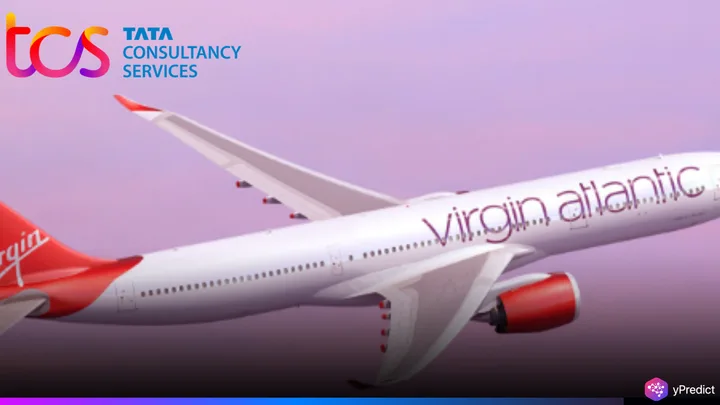
Virgin Atlantic has signed a seven-year deal with Tata Consultancy Services (TCS) to overhaul its core systems using artificial intelligence. The partnership, announced in London and Mumbai, extends their 20-year relationship into a new digital chapter. TCS will lead the airline’s push toward a smarter, cloud-first future, aiming to improve speed, service, and scale. A central focus is creating an AI-powered command centre that gives real-time operational insights to airline staff.
This move comes as Virgin Atlantic looks to personalise travel, reduce disruptions, and modernise customer experiences. CFO Oli Byers said, “Technology will enable us to deliver smarter, simpler and more memorable experiences.” Analysts see this as one of TCS’s largest deals in recent months. Though financial terms were not shared, both sides emphasised the project’s long-term strategic importance.
Command Centre and AI Tools to Drive Airline Smarts
At the heart of the upgrade is a new AI-powered “Technology Command Centre,” jointly developed by TCS and Virgin Atlantic. This hub will serve as the nerve centre for real-time decision-making, helping staff respond faster to flight or system issues. The command centre is part of a broader shift to unify the airline’s tech stack using cloud platforms and AI models.
TCS will roll out its in-house tools, Cognix and AI WisdomNext, to improve customer service and operational speed. These tools will help personalise services by tracking data on things like meal preferences and seat choices. CEO Shai Weiss called the shift “a move from outsourcing to innovation,” highlighting its focus on customer experience. The system also aims to simplify workflows for frontline employees by offering timely, context-rich insights they can use during flights or delays.
AI Boosts Personalisation, But Risks Remain
The use of AI is expected to change how Virgin Atlantic handles everything from ticket pricing to aircraft maintenance. Generative AI will be used to anticipate passenger needs, streamline boarding, and adjust flight operations in real time. The technology also supports smart allocation of seats and predicts in-flight meal preferences, especially on India-bound flights. “Every Virgin Atlantic flight to India has local cabin crew and familiar food,” Weiss noted, showing the airline’s push toward cultural alignment.
Still, experts say such transformation comes with risks, data privacy, training challenges, and system dependency could slow progress. TCS will deploy onsite teams to ensure smooth integration and adapt systems based on real-time airline feedback. The airline flew over five million passengers in 2024. It hopes to build on that number by offering faster, smoother and more responsive travel experiences.
Can AI Keep Planes Running on Time and Passengers Happy?
Virgin Atlantic’s move to use AI is part of a larger shift in how airlines want to serve travellers. Long delays, confusing updates, and stiff processes are things most passengers have faced. Now, smart systems could help fix that by spotting problems early and giving staff the tools to act fast. The hope is to make flying smoother and more personal.
But there are still questions. Can AI make the right calls every time? What happens if it doesn’t? As more airlines turn to automation, trust and clear oversight will matter more than ever. For Virgin Atlantic, the deal with TCS is a step toward a more flexible, data-driven future. Whether it becomes a model for others will depend on how it works in the skies and how people respond to the changes.






